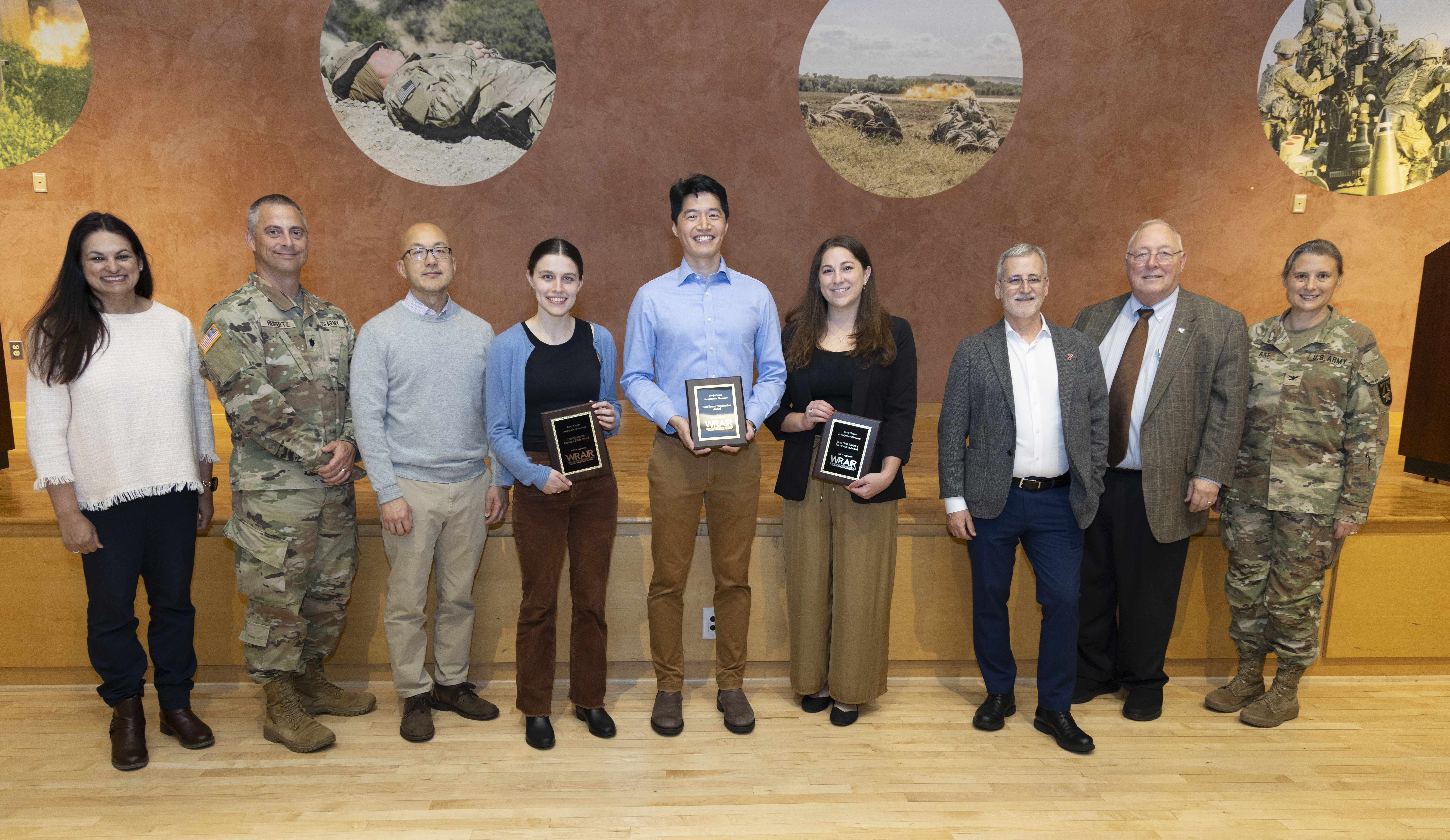
The last week of May, MHRP hosted its second annual Early Career Investigators Showcase, an event designed to celebrate and encourage the program's bench of up-and-coming scientists. Held at the Walter Reed Army Institute of Research (WRAIR), the showcase provided a platform for junior investigators to present their research to advance HIV countermeasures across a range of disciplines, from AI-assisted vaccine design and adjuvant optimization to global health program implementation and clinical research findings.
This event underscored MHRP's commitment to to nurturing the next generation of scientific investigators, fostering a collaborative research environment and innovating across MHRP's global network. Prior to the event, participants worked closely with senior scientist mentors to develop their materials. They also had the opportunity to partake in presentation training and receive one-on-one feedback.
The day-long program featured a morning session with full-length oral abstract presentations as well as three-minute scientific elevator pitches that required distilling the purpose and context of a research project into a compelling, accessible bite-size presentation. Nearly 25 participants presented posters in an afternoon session.
A panel of guest judges scored the presentations, and the showcase concluded with awards for outstanding presenters:
- Best Scientific Elevator Pitch: Elizabeth Comeau, "Rare drug resistance mutations in HIV-1 detected with deep sequencing in a Philippines cohort"
- Best Poster Presentation: Roger Ying, "Low HIV pre-exposure prophylaxis use despite high Interest among individuals with behavioral vulnerability to HIV in Uganda"
- Best Oral Abstract Presentation: Michelle Zemil McCrea, "Elucidating development pathways of broadly neutralizing antibodies from people who acquired multiple founder variants of HIV"
The Early Career Investigators Showcase commemorates HIV Vaccine Awareness Day, which was May 18. HIV remains an ongoing global health challenge, with more than 1 million new cases per year, and about 300 new cases annually in the U.S. Department of Defense.
